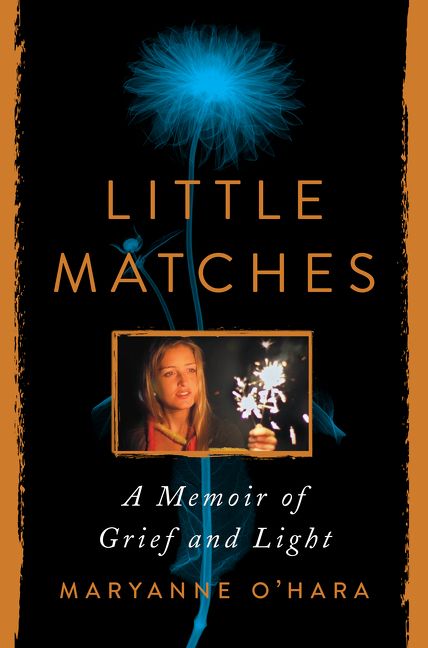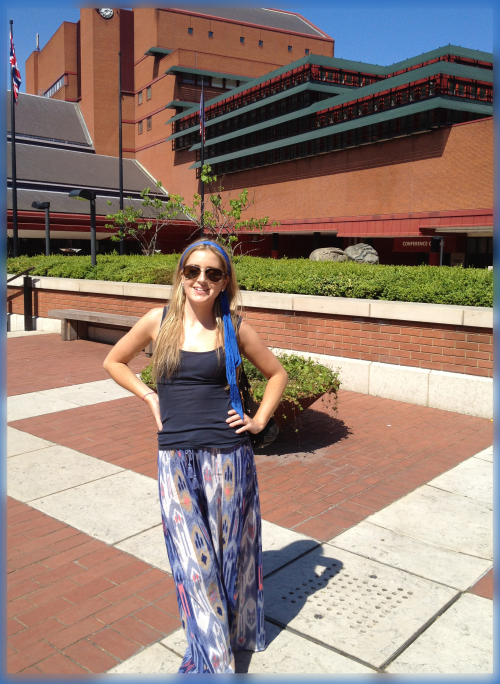 Today, we welcome Maryanne O'Hara, author of Little Matches, to the blog. Little Matches published today, April 20th. It is an emotionally raw and inspiring memoir that illuminates a mother’s grief over the loss of her adult child and considers the hope of soulful connections that transcend the boundary of life and death. We were so fortunate to have Maryanne on our Door to Door episode to speak about this special book and learn more about Caitlin and their relationship. Read a note from Maryanne below.
Today, we welcome Maryanne O'Hara, author of Little Matches, to the blog. Little Matches published today, April 20th. It is an emotionally raw and inspiring memoir that illuminates a mother’s grief over the loss of her adult child and considers the hope of soulful connections that transcend the boundary of life and death. We were so fortunate to have Maryanne on our Door to Door episode to speak about this special book and learn more about Caitlin and their relationship. Read a note from Maryanne below.
***
today i went to the british library with my mom
and there were all kinds of exhibits
and i saw the original lyrics written for
In my life by john lennon
Caitlin O’Hara, texting a friend in 2012
One of the delights of being a mother was realizing that I was going to have a second childhood. All of the things I had loved, outgrown, and forgotten—the toy trains and fingerpaints, the chubby books and blue popsicles—I could enjoy anew, made even better this time around because I would experience everything with an exquisite little child.
Life became Proust’s madeleine. It was like living inside lost time. And the best place to live inside lost time was the library.
I don’t remember exactly when I first discovered the children’s room at my own library, growing up, but I remember my wonder. A room in this big, important-looking building just for kids? Full of kids’ books? Could there be anything better?
I read to Caitlin from her earliest days. I wanted language and stories to be second-nature so that she would easily become a reader herself. When she was two and diagnosed with cystic fibrosis, a disease that would mean she would spend much of her life in the hospital, books meant she was never really trapped in a room. Suitcases packed for two-week inpatient stays always included a pile of new books. Inside of them, she could be anywhere she wanted to be. Reading whet her appetite for real adventure. She loved traveling, and her father and I brought her on every trip we ever planned.
Caitlin’s health declined as she grew older, but she was able to attend college and work and live mostly independently through much of her twenties. We were close and when apart, kept in constant touch via text. Those texts are long scrolling records of the random and wonderful moments of the everyday:
there is a brush fire in the fens
so im going to the dr at 220
are you making dinner Sunday?
i was driving home thinking how much i love 'in my life' love john lennon
did you book the st john tickets yet?
For every three trips we planned, we usually canceled at least one. The year she was a junior in college, we booked a springtime visit to Cambridge, England. A week before our flight, her cough worsened, her pulmonary function numbers went down, and instead of boarding that British Airways jet, she checked into the hospital for two weeks.
But 2012 was a magical summer. A novel I’d been writing for ten years was about to be published by Viking. Caitlin had begun to take a new gene-modifying drug that helped her feel well enough to rent an apartment in Paris, something she’d long fantasized about, for a few weeks. And before she left for Paris, she and I were able to spend a week in London.
One day we visited the British Library. Its exhibits were as enchanted as objects in any fairytale. There was Charlotte Bronte’s hand-written fair copy manuscript of Jane Eyre. Right there in front of our eyes, the sentences as neat and orderly as Jane herself. And over there, look—Kazuo Ishiguro’s handwriting, ideas for a book that would become one of my ever-favorites, The Remains of the Day. I read the accompanying notes, which pointed out that he liked to lock himself away, for days, to write undisturbed. “Just like you,” Caitlin said.
Her attention drifted over to another case and she called me over, delighted, her eyes shining. Behind the glass, perched on a plinth, sat a heavily scratched-out version of the original lyrics to In My Life, in John Lennon’s handwriting from 1965.
In one of Lennon’s final interviews, he described the song as a remembrance of people of the past. In the original draft, he connected that love of people to concrete places. He wrote about Penny Lane, and tramsheds with no trams, and the “circle of the Abbey” where he had seen happy hours, all glimpsed from the number 5 bus into town.
Place grounds us, connects us. And libraries do that better than anywhere. With their books and their inherent reverence for words, and for records of what was, they connect us viscerally to the past and the future while immersing us utterly inside the present. That immersion stops time. It’s magic.
Recently I found a photo from that day, of Caitlin’s smiling self posing in front of the library. Until the end, her disease was invisible. Looking at that photo you would never know that her lung function was thirty percent of normal. You would never know that she only had a few years left to live. You see only her joy in the moment.
The next time I am in London, I plan to make a trip to the British Library. It will be painful and poignant and it will also be comforting. I am grateful for our human ability to remember, and grateful that humans maintain libraries. I will immerse myself inside lost time, look upon that John Lennon manuscript, and imagine my daughter beside me. I will conjure the memory of her utter delight.
***
Thank you, Maryanne, for this beautiful piece and for all of your insight on our Door to Door episode. Watch the replay below:
Thanks for writing and sharing this wonderful book.
-Lainey

